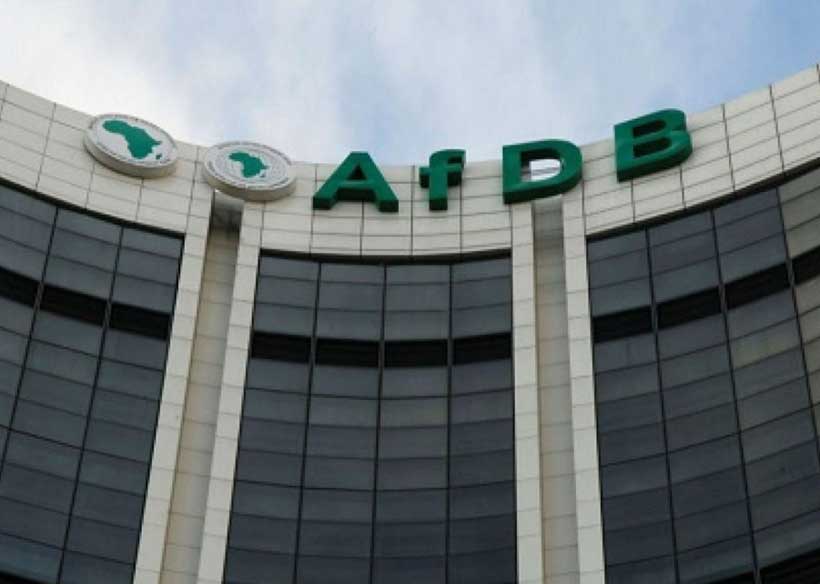African Countries Advance Debt Reforms to Secure Inclusive Growth
Transition States in Africa—characterised by fragile political institutions, economic volatility, and vulnerability to climate and security shocks—are among the most debt-distressed globally.

- Country:
- Ghana
In a determined push to strengthen sovereign debt management and accelerate inclusive development, several African nations—both transition states and more stable economies—are undertaking significant public finance reforms. These efforts were showcased during a week-long training and capacity development event hosted by the African Development Institute of the African Development Bank (AfDB) in Accra, Ghana, from June 30 to July 4, 2025.
Themed “Strengthening Capacity for Loan Negotiation and Debt Restructuring in Africa's Transition States,” the gathering marked the second edition of the Public Finance Management Academy for Africa (PFMA)’s “Spotlight on Public Debt Management in Transition States.” The event convened policymakers, debt managers, and finance experts from across the continent, focused on reshaping debt governance, improving loan negotiation capacity, and bolstering institutional resilience among Africa’s most vulnerable economies.
Addressing Debt Distress in Africa’s Transition States
Transition States in Africa—characterised by fragile political institutions, economic volatility, and vulnerability to climate and security shocks—are among the most debt-distressed globally. Countries such as Sierra Leone, The Gambia, Chad, and South Sudan are grappling with high or moderate debt burdens, with limited capacity to restructure or renegotiate external obligations.
Recognising these constraints, the African Development Institute’s PFMA platform aims to fortify local capacity through high-level training, peer learning, and cross-country collaboration. At the Accra event, representatives from over a dozen African countries explored successful debt reforms and tools to improve their negotiation positions, focusing on how to build stronger institutions and systems to manage debt sustainably.
Ghana and Zambia: Reform Champions Leading by Example
Though not transition states, Ghana and Zambia have become models of reform in the region. Ghana’s Deputy Minister of Finance, Thomas Nyarko Ampem, delivered opening remarks, celebrating Ghana’s swift recovery from recent debt distress. The country’s landmark restructuring and macroeconomic reforms have already yielded results:
-
5.3% GDP growth in Q1 2025, surpassing the 4.0% annual target
-
Record-low inflation since 2022
-
A seven-year high in business and consumer confidence
-
The Ghanaian cedi ranked the world’s best-performing currency
Ampem credited this turnaround to strong governance measures, including a legal mandate prohibiting extra-budgetary spending and a strict requirement for ministerial approval before securing any public loans.
Zambia, another major reformer, has similarly made strides. As part of its engagement with the G20 Common Framework for Debt Treatment, the country recently passed a law to establish a Debt Management Department, tasked with overseeing debt restructuring and enhancing transparency. Alongside Ghana, Zambia joins Chad and Ethiopia as participants under the G20 Framework.
Progress in Sierra Leone and The Gambia
Encouraging progress also emerged from Africa’s transition economies. Sierra Leone, once plagued by hyperinflation and governance challenges, has managed to reduce inflation from 52% in late 2023 to 7.5% by April 2025. The country’s commitment to transparent debt practices and arrears clearance has boosted investor and lender confidence.
In The Gambia, a disciplined fiscal strategy has led to a drop in the debt-to-GDP ratio from over 120% in 2017 to 74% by end-2024. These improvements were supported by consistent debt sustainability assessments, better debt monitoring systems, and international cooperation.
An African Approach to Debt Challenges
Dr. Eric Ogunleye, Director of the African Development Institute, emphasized the need for African-led solutions. “We have a lot of good lessons within Africa that we can learn from,” he said. “African countries have solutions for most of the problems facing them, but we need to look inward enough.”
He underscored the AfDB’s commitment to turning debt into a development enabler, not a barrier. “Our focus is to make debt work better for Africa,” Ogunleye affirmed.
One of the most innovative proposals emerging from the event was the idea of an “Accra Club”—a borrower coordination group that would mirror the function of creditor clubs like the Paris Club or London Club. Such a platform would unify African nations’ positions in sovereign debt negotiations, strengthening their leverage and helping prevent asymmetric or punitive debt restructuring terms.
Tools and Institutions for a Sustainable Future
Participants also called for the establishment of early warning systems for debt distress, which would allow vulnerable countries to anticipate and address risks before they become full-blown crises. This proactive approach aligns with global best practices and supports long-term economic resilience.
The African Development Bank continues to support these objectives through its institutional tools, including:
-
The Public Finance Management Academy for Africa (PFMA)
-
The Africa Debt Managers Initiative Network (ADMIN)
-
The Debt Management Forum for Africa (DeMFA)
-
PFMA Spotlight on Public Debt Management in Transition States
These initiatives are part of a broader strategy to ensure African countries are better equipped to manage debt sustainably, achieve structural transformation, and secure inclusive economic growth.
As Ogunleye reminded participants in his closing remarks: “The African Development Bank is your bank. We stand ready to work with all partners everywhere, not just in proffering solutions, but also in implementing them for sustainable impact and outcomes.”










